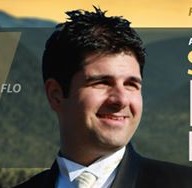Mayor/councillor say four-year term is a mixed bag
It’s official – B.C. will now be the final province in Canada to adopt four-year terms for municipal councils, mayors and school district representatives.
Castlegar Mayor Lawrence Chernoff, himself a council veteran completing his third term as mayor and having served on council since 1987 (with a three-year hiatus) said it’s a complicated issue with both upsides and down.
“It’s good in that it allows you to work through long-terms projects and see them to fruition,” he said, adding municipalities often have many multi-year projects on the go at any given time.
He also said it could offer significant cost savings for cities to have to undertake the election process less frequently, as it’s an expensive process. “Elections aren’t cheap, that’s for sure.”
The downside, he said, is that it may weaken the candidate pool by forcing out people who simply can’t make that long of a commitment.
“It’s a complicated decision involving financial planning, life planning – everything comes in to play,” he said. “One more year doesn’t seem like much, but when you look at that in terms of planning your whole life, four years can be a long time.”
He also noted that, the longer the term, the more likely things will come up such as job transfers or health issues that could force communities to pay for expensive byelections, perhaps negating some of the anticipated cost savings.
Chernoff said he hasn’t yet decided whether he’ll be running for mayor again this fall, but the four-year term could impact his decision.
Rookie incumbent Florio Vassilakakis said he agrees with Chernoff.
“There are pros and cons,” he said. “It makes you think a little harder (about running).”
He said he agrees about the merit of being able to see projects through without council plans and priorities being hijacked by an election cycle, and that a four-year term gives new councillors an opportunity to embrace the initial learning curve and reach their full productivity and potential.
But he added that people simply don’t realize what a huge commitment council is – even he himself didn’t fully understand what he was getting himself into when he signed on for the byelection.
“It changes your lifestyle a lot,” he said, explaining the public sees the regular meetings and public consultations, but perhaps is unaware of the committee meetings, public and social events, media time and time simply spent talking to the public while at work, in the store, and at social gatherings.
To illustrate, he pointed out that, as a father of a two-year-old, running again in the upcoming election will be committing a significant period in his family’s timeline (his son will be six by the time his term is over).
He also said it may impact the turn-over of incumbent councillors, as they contemplate starting families, career changes, retirement, etc.
“From a cost standpoint, I’d say (four-year terms) probably make sense,” he said. “But (it may mean) you’re drawing from a different pool of people.”
The municipal election is slated for Nov. 15, 2014.


























Comments